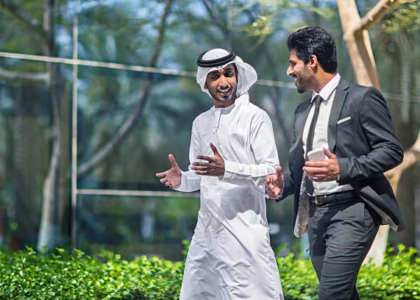Understanding the Importance of Career Transitions
Career transitions are pivotal moments in an individual’s professional journey, often signaling a strong desire for personal growth and the pursuit of new opportunities. The motivations behind seeking a change in one’s career can vary widely, including the exploration of shifting interests, adapting to changing life circumstances, or simply the quest for new challenges. For many, these transitions are catalysts for self-discovery, allowing individuals to reassess their goals and values in relation to their professional lives.
In the context of the Muslim community, the dynamics of career transitions can take on additional layers of complexity. Cultural, religious, and personal values play significant roles in shaping career decisions. Many individuals find themselves at a crossroads where their professional aspirations may not align with their religious beliefs or community expectations. This discrepancy can create a unique set of challenges that requires careful consideration and reflection.
Additionally, during transitional phases, individuals may encounter opportunities that align more closely with their values and beliefs. Engaging with the Muslim community provides access to networks that can facilitate career advancement while ensuring adherence to personal and religious principles. Mentorship and support within these networks can empower individuals to navigate their careers with confidence and purpose, enabling them to carve out paths that reflect their identities.
The importance of career transitions cannot be understated, as they often lead to enhanced job satisfaction, increased motivation, and a stronger connection to one’s work. Recognizing the significance of these changes within the framework of the Muslim community can help individuals make informed decisions. Embracing the nuances of career transitions allows for a more fulfilling professional life, marked by alignment between personal aspirations and community values.
Identifying Opportunities Within the Muslim Community
Identifying career opportunities within the Muslim community can be both fulfilling and beneficial for personal and professional growth. The community is known for its diverse sectors where dedicated individuals are making significant impacts. Key areas include non-profits, education, healthcare, and entrepreneurship. Each of these sectors offers unique opportunities that not only cater to community needs but also align with individual aspirations and skills.
To effectively pinpoint these opportunities, it is essential to engage with community networks. One effective strategy is to attend local networking events, where you can meet like-minded professionals. These gatherings often focus on collaborative initiatives and can lead to potential job openings. Additionally, engaging with social media platforms tailored to Muslims can widen your reach. Platforms like LinkedIn allow you to connect with industry leaders and organizations actively seeking talent. Sharing your professional journey and showcasing your skills on these platforms can increase visibility within the community.
Utilizing Muslim-specific job boards presents another valuable approach. These platforms cater specifically to job seekers within the community and can offer exclusive postings that are often overlooked on mainstream job websites. By taking advantage of these resources, you can stay informed about opportunities that align with your professional goals.
Furthermore, it is crucial to reflect on how your skills, passions, and experiences resonate with the needs of the community. Understanding the demands within sectors such as education or healthcare can help you tailor your job search effectively. By aligning your unique strengths with these areas, you can not only find meaningful work but also contribute positively to the community. This dual focus on personal fulfillment and community impact can foster a rewarding career transition.
Building Skills and Gaining Experience
In today’s dynamic job market, particularly within the Muslim community, the importance of building skills and gaining experience cannot be overstated. Transitioning careers requires a proactive approach to skill development that aligns with the needs of potential employers. Identifying which skills are in demand within the community is a critical first step. This can often be achieved by conducting research on local job listings, networking within community organizations, or utilizing resources such as career centers that specialize in serving Muslim professionals.
Many sectors within the Muslim community are experiencing growth, including healthcare, education, social services, and finance. Skills such as cultural competency, language proficiency, digital literacy, and soft skills like communication and teamwork are highly valued. Understanding the specific requirements of these sectors will guide individuals in tailoring their skill development efforts to meet market demands.
One effective method to acquire new skills is through volunteer work or internships within organizations that align with one’s career interests. Volunteering not only provides practical experience but also fosters connections within the community, offering invaluable networking opportunities. Additionally, many Muslim organizations offer mentorship programs where individuals can learn from seasoned professionals. These programs can be instrumental in guiding one’s career progression while cultivating a sense of belonging within the community.
Online courses have also emerged as a flexible and accessible avenue for developing relevant skills. Platforms specializing in professional development can equip individuals with the technical knowledge required to thrive in their chosen fields. Furthermore, engaging in lifelong learning ensures that individuals remain competitive in an evolving job landscape. As members of the Muslim community seek meaningful career transitions, embracing opportunities for personal development will enhance their employability while strengthening their ties to shared cultural values.
Navigating Cultural Dynamics and Building a Professional Identity
Career transitions can often lead to various challenges, particularly within the context of the Muslim community, where cultural dynamics play a vital role in shaping professional identity. Understanding the intricate tapestry of cultural values, religious beliefs, and community expectations is essential when pursuing job opportunities. In this diverse landscape, individuals must acknowledge how these factors influence career choices and behavior in the workplace.
Cultural values often define what is considered appropriate or meaningful within the Muslim community. For instance, many may prioritize a career that aligns with their faith and contributes positively to society. Recognizing these values is crucial in making informed career decisions that not only serve personal aspirations but also resonate with the community’s standards. Furthermore, religious beliefs can impact work-life balance, ethical considerations, and the nature of professional relationships, which play a significant role in navigating job transitions.
To effectively maneuver these dynamics and construct a professional identity that is both authentic and respectful of cultural heritage, individuals can employ several strategies. Engaging in self-reflection can help clarify personal values and how they align with professional goals. Networking within the community to seek mentors and role models can also be advantageous. These mentors often provide invaluable insights and share experiences that can enlighten job seekers about best practices in aligning their career paths with cultural expectations.
Moreover, embracing continuous learning and development within the context of cultural effectiveness can enhance one’s adaptability in various environments. By fostering an inclusive perspective and establishing a supportive community network, individuals can navigate cultural complexities during career transitions. As a result, they can build a professional identity that not only reflects their ambitions but also honors the rich heritage of their cultural background.




